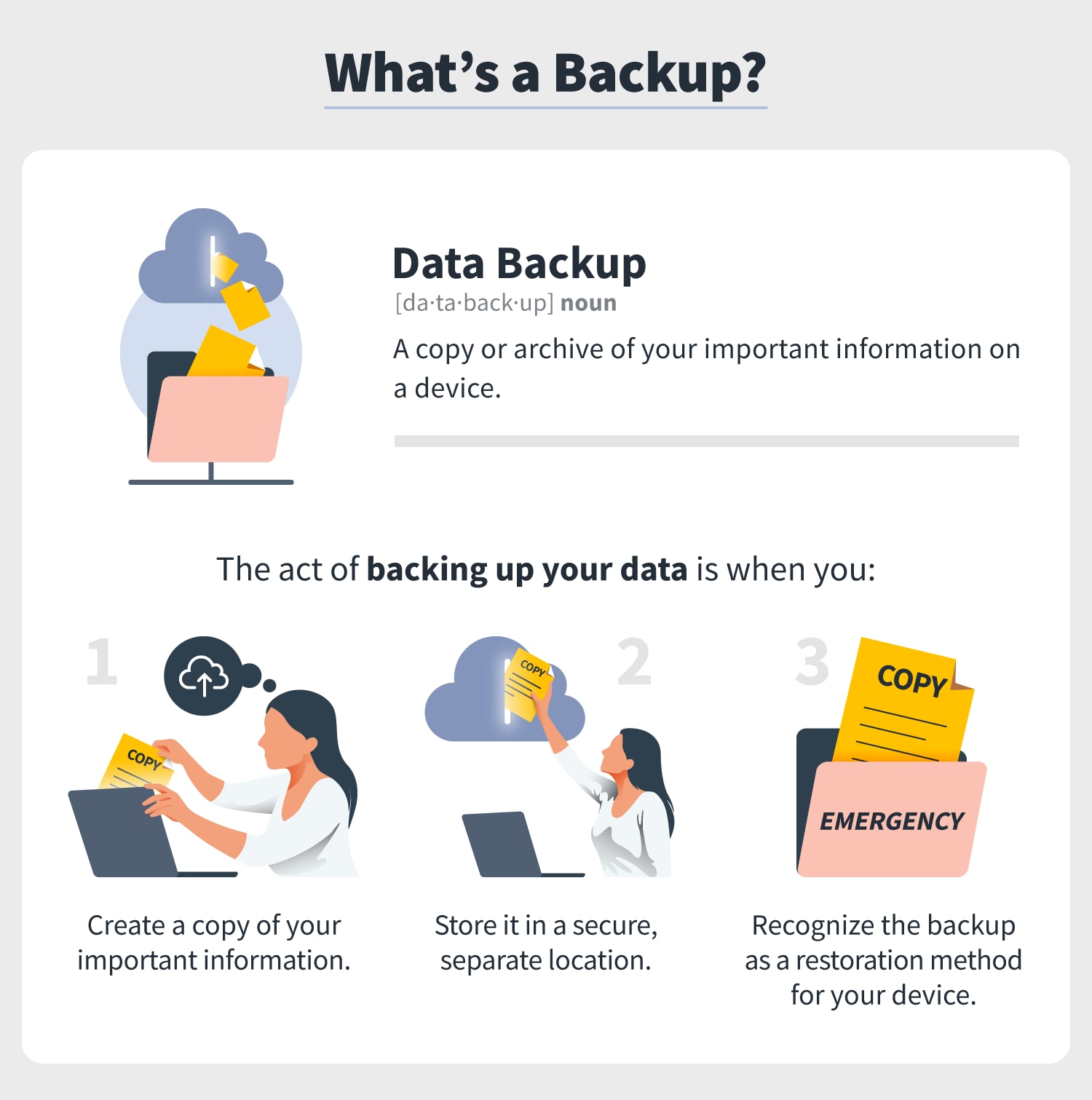

This is why back ing up your data is critical for all businesses, large and small. Data is the lifeblood of modern organizations, and losing data can cause massive damage and disrupt business operations.
#Data backup definition how to
And if you're using an external or internal HDD, then take a look at our guide on how to check your hard drive's health.In an increasingly digitized business landscape, data backup is vital for the survival of an organization. It's also worth looking at our feature explaining why cloud services should be a priority for any small business. Make sure to read our feature comparing on-prem vs cloud storage, and our article asking how secure is cloud storage?, which also highlights the most secure providers. In fact, it might not be too long before physical hard drives become another casualty of digital progress.

You get much more peace of mind, and the ability to back up your data continuously from any device. Cloud storage vs external: Conclusionįor us, there’s little question that cloud storage is the best way to back up your data. Plus, you get file versioning and advanced recovery options to save your data in case you accidentally delete a file. Most services create redundant copies of your files on multiple servers around the world. With cloud storage, on the other hand, there’s virtually no chance that your files could disappear. But the manufacturer won’t help you recover your files, which can cost $1,000 or more and isn’t guaranteed to work. If an external drive fails, the warranty may pay the cost of the drive itself. However, consider what you’re getting in return for the pricing difference. Meanwhile, cloud storage often requires a monthly subscription. That may make hard drives seem like the more attractive option, since you can get terabytes of storage for well under $100.

While external hard drives may appear cheaper, a cloud storage subscription insulates you from any unexpected costs (Image credit: Unsplash)įor many people, the goal is simply to get the cheapest backup solution. Cloud storage vs external: Sync technology When that happens, it can be expensive or impossible to recover your data. More than one-quarter of all modern hard disk drives fail before the end of their warranty period. However, if you broaden security to include reliability, hard disks start to look a lot less attractive. Hackers can’t access your hard disk unless it’s connected to your computer. To be fair, data security on an external hard disk drive is pretty strong. This in turn means that even if a hacker got their hands on your data, they wouldn’t be able to unlock it. Some services go even further by offering zero-knowledge encryption-meaning that only you know your encryption key. Many secure cloud systems now use virtually uncrackable 256-bit AES (Advanced Encryption Standard) encryption to protect your data before it even leaves your devices. But, cloud storage security has come a long way in a short time.

Security used to be a major flaw with cloud storage, with some cloud providers losing users’ data to hacks. While external hard drives are still highly secure, cloud storage providers utilize encryption for maximum file safety (Image credit: Unsplash)


 0 kommentar(er)
0 kommentar(er)
